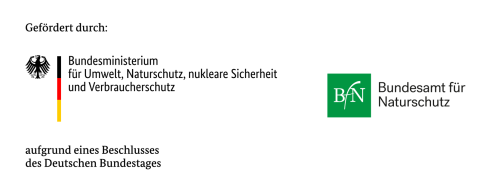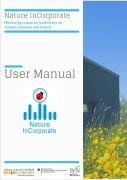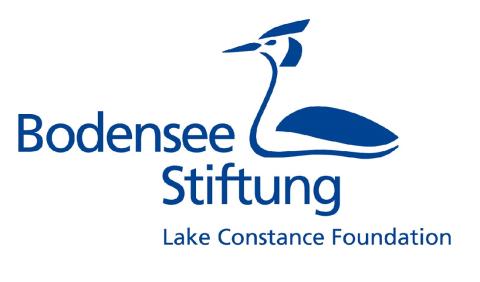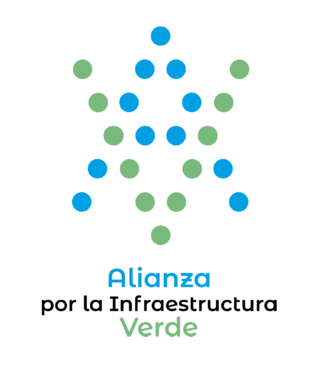Welcome to Nature InCorporate
First Biodiversity Monitoring System focusing on business, industrial and
commercial premises in the EU.
The monitoring system records your ecological upgrading and the progress on your way to a biodiversity-oriented company site. The platform automatically generates a report that collects the most relevant environmental, social and corporate aspects and data. It monitors the status of biodiversity in your company in a complete web environment. The results provide you benchmarks on the status of biodiversity and its progress over time.
From grey to green - join the transformation! Read more how to become a Biodiversity-Oriented Premise (BOP) and visit our infographic.
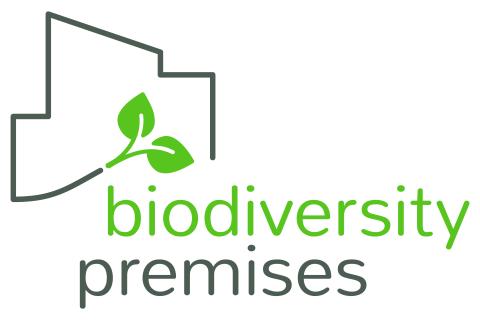
Who is already participating?
What Is Monitored?
Biodiversity, social and corporate actions and impacts
Biodiversity
Monitoring Report
Assessment of strengths and weaknesses related to biodiversity
Why Monitor Biodiversity?
Input for certification and compliance with future regulations
User Manual And Support
Support is provided by the BOP Focal Points in your country
What is monitored?
The implementation of a monitoring system enables to monitor the success of the biodiversity-oriented measures and to evaluate the effects on biodiversity, the working climate and company management. The monitoring system is structured in three thematic areas to facilitate data collection:
- bi-check Biodiversity: The system monitors the company's actions to improve biodiversity in and around the facilities. A map shows you which protected areas and biotopes are around your property have which needs. Wetlands, watercourses, forests and dry meadows are just a few possible ecosystems. Your BOP can be integrated into ecological corridors or green infrastructure. The biodiversity-oriented premises are able to contribute to biotope connectivity so that species can migrate. Nature-oriented design of company premises as part of green infrastructures provide ecosystem services.
- bi-check Social: The system measures the impact of actions aimed at promoting biodiversity on the well-being of employees and public awareness. Biodiversity-oriented design offers good opportunities to sensitize and actively involve employees for biodiversity, improves the working atmosphere and increases employees' identification with the company.
- bi-check Corporate: The Monitoring System analyses the integration of biodiversity into the management of the company. Moreover, the companies promote the integration of biodiversity into management decisions in the business sector (by being an active member of a Business & Biodiversity initiative, motivating business associations and or chambers of commerce, inviting other companies to exchange experience or via other actions).
Biodiversity Monitoring Report
Thanks to our powerful system, once all the data has been entered, our platform will automatically generate a report that will collect the most relevant environmental, social and corporate aspects.
Companies participating in Nature Incorporate receive an annual monitoring report on the development of their nature-related areas. With the help of a questionnaire, you can record the measures already implemented and identify and improve their positive benefits even more effectively. The report can be used as a communication tool.
The national focal points can use the National Monitoring Report to demonstrate how the initiative is developing in general and where synergies with green infrastructure such as biotope corridors are possible.
Why monitor biodiversity?
Why should small, medium and big-sized enterprises use the monitoring system? Your company records the ecological value of near-natural sites for society and improves the integration of near-natural company sites into the green infrastructure. Reporting on ecologically enhanced areas at the site is facilitated, e.g. for environmental management. Companies have a responsibility to protect the environment and preserve biodiversity. Monitoring biodiversity on the premises shows that the company takes this responsibility seriously.
Comply with future regulations
With the decision of the Green Deal in 2019, the European Union (EU) set the course for more sustainable investments, for example in areas such as renewable energies, biodiversity or the circular economy. The EU taxonomy now creates clear rules and framework conditions for the concept of sustainability when a company is operating in a sustainable or environmentally way in relation to six environmental targets. One of these targets is the protection and restoration of biodiversity and ecosystems. This positively differentiates these companies from their competitors, which should promote sustainable business and environmentally friendly technologies.
On 23 February 2022, the Commission adopted a proposal for a directive on corporate sustainability due diligence. The aim of this directive is to foster sustainable and responsible corporate behaviour and to anchor human rights and environmental considerations in companies’ operations and corporate governance. The new regulations will ensure that businesses address adverse impacts of their actions, including in their value chains inside and outside Europe.
The reports can be used as a proof to get financial support for measures in your company and shows the sustainable behaviour. Reliable data on positive impacts demonstrate the ecological value of BOP and arguments for funding can be developed.
Input for certification and CSR reports
- The monitoring system creates reliable data on the ecological value of BOP (e.g. healthy/satisfied staff, improved habitats for species and linking BOP to biotope coridors) and the progress over time. It shows the development of measures to see what works well and where changes are needed. Within the framework of EMAS the environmental performance must be continuously improved. Based on the entered data, the monitoring system generates a report and provides recommendations for improvement and ready-to-use figures for CSR reporting.
European Benchmarking
- Become the cross-sector benchmark in the consideration of biodiversity on company premises. This practice should evolve into industry standards and reach more and more companies. The platform allows contact and exchange with other BOP companies that participate.
Global performance for investors
- Your biodiversity performance is an argument to be selected by big companies. Consumers and customers want more and more information about products and fact-based reporting can be used for both internal and external communication. You get better visibility of the company's efforts through tangible evidence of impact.
Orientation for planning, maintenance and increasing efficiency
The maintenance effort for biodiversity-oriented design is often lower than for conventionally designed areas, as the maintenance work is carried out at longer intervals and no plant protection products are applied. Biodiversity monitoring can also help to increase the efficiency of measures to conserve biodiversity. Companies can learn through monitoring how to use their resources more efficiently to achieve ecological goals.
User Manual and Support
The user manual gives you technical guidance and describes the indicators. Download it here and if you have any questions, please contact the BOP Focal Points. The BOP Focal Points are available in your country for support. As experts in biodiversity-oriented premises, they offer guidance, initial advice and training to companies and other stakeholders. They assist with data entry and collection, check plausibility and provide recommendations for action.
National BOP Focal Points
Germany
Lake Constance Foundation
The Lake Constance Foundation (LCF) is an international charitable foundation for environmental protection and nature conservation based in Radolfzell at Lake Constance. It`s main fields of activity are sustainable land use planning, water quality and sustainable use of water resources, environmental friendly tourism, environmental friendly agriculture, climate mitigation and adoption to climate change and protection of biodiversity and ecosystem services.
Contact:
Mia Glammeier, mia.glammeier@bodensee-stiftung.org
Bodensee-Stiftung
Fritz-Reichle-Ring 4, 78315 Radolfzell, Deutschland
DGNB - German Sustainable Building Council
The DGNB is a non-profit organization based in Stuttgart with the aim to promote change in the building and property market. The DGNB certification of sustainable buildings, building interiors and districts is worldwide known. Besids the certification the DGNB Academy is imparting the expert knowledge that is needed to understand the requirements of sustainable building. Together with the Lake Constance Foundation, the DGNB is currently developing its certification further, with an explicit focus on biodiversity.
Contact:
Carla Schweizer, c.schweizer@dgnb.de
DGNB GmbH
Tübinger Straße 43, 70178 Stuttgart, Deutschland
Austria
GRÜNSTATTGRAU
A holistic competence centre for greening buildings offering infrastructure, know-how, instruments, expert knowledge, and opportunities for collaboration for businesses, researchers and the general public. For businesses, GRÜNSTATTGRAU offers support in product development and project scoping. A database is available for the general public and researchers. Together with the Greening Building Association, they ensure quality by certifying new and existing products and systems following the standard ÖNORM L1131.
Contact:
Stefanie Pfattner, stefanie.pfattner@gruenstattgrau.at
GRÜNSTATTGRAU Forschungs- und Innovations- GmbH
Favoritenstraße 50, 1040 Wien, Austria
Spain
Alliance for Green Infrastructure
AIV is a network of organizations, entities, professionals, academics, academics, researchers and individuals interested in the study, advocacy and promotion of green infrastructure.The AIV is created within the framework of the EU LIFE BooGI-BOP project, and arises from the need to establish a space for collaboration between actors and promoters in the field of green infrastructure in Spain and beyond. The aim is to professionalize and standardize green infrastructure and to create a lobby for the sector in Spain.
Contact:
Carmen Avilés Palacios, carmen.aviles@upm.es
Calle José Antonio Nováis, 10. 28040. Madrid, España
David Álvarez García, davidalvarez@ecoacsa.es
Calle Porto Cristo, 1. Esc. Izq. 28924. Alcorcón (Madrid). España
www.alianzaporinfraestructuraverde.eu
Croatia
Croatia Green Building Council
Croatia Green Building Council (CGBC) is a non-profit organization that was founded to promote sustainable building practices. The founders of CGBC were from the business and institutional sectors, and the organization aims to drive the transformation of the built environment towards sustainable growth. CGBC has a platform for the implementation of green building principles, not only in Croatia but also in the region of CEE, through close cooperation with the network of GBCs in neighbouring countries. CGBC is a participant in the World GBC, a global network leading the transformation of the built environment to make it healthier and sustainable.
Contact:
Ana Šenhold, ana.senhold@gbccroatia.org
Green Building Council Croatia
Ulica Grada Vukovara 274, 10 000 Zagreb, Croatia
The first version of Nature Incorporate was created as a part of the EU LIFE project BooGI-BOP and the further development continues within the programme "Unternehmen Biologische Vielfalt (UBi)".
LIFE BooGI-BOP project
Behind the abbreviation BooGI-BOP stands Boosting Urban Green Infrastructure through Biodiversity-Oriented Design of Business Premises. The project LIFE BooGI-BOP is supported by seven European partners from Austria, Germany, Slovakia and Spain and promotes the design of business and industrial zones to improve biodiversity.
Biodiversity-Oriented Premises (BOP) is a practical approach that contributes to the creation of biotope corridors and green urban infrastructure - especially in urban and peri-urban areas in densely populated European regions, which also improves the well-being of individuals and society. On the BooGI-BOP website you will find guidelines, toolkits and positive example of biodiversity-oriented premises.
The project EU LIFE BooGI-BOP (LIFE17 GIE/DE/000466) was funded by EU LIFE, the European Union’s funding instrument for the environment and climate action.
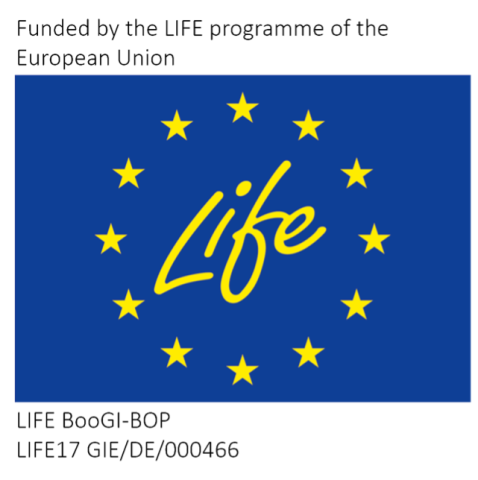
Unternehmen Biologische Vielfalt – UBi
The project "Unternehmen Biologische Vielfalt -UBi" is a dialogue and action platform initiated by the Federal Ministry for the Environment in 2013 to promote exchange and cooperation between business, ministries and NGOs to contribute to stop biodiversity loss. The focus is on promoting action for biodiversity in the industry and the service sector. "Unternehmen Biologische Viefalt - UBi" supports companies to initiate and improve biodiversity management and to respond to new legal requirements of the European Commission and on national level. The platform contributes to the implementation of the EU Biodiversity Strategy 2030 and the corresponding national strategies.
Since November 2021, the UBi project is funded by the German Federal Programme on Biological Diversity (Federal Agency for Nature Conservation with funds from the Federal Ministry for the Environment, Nature Conservation, Nuclear Safety and Consumer Protection). The partners of "Unternehmen Biologische Vielfalt" are the organisations 'Biodiversity in Good Company', Lake Constance Foundation, Collaborating Centre on Sustainable Consumption and Production (CSCP), DIHK Service GmbH and Global Nature Fund.

